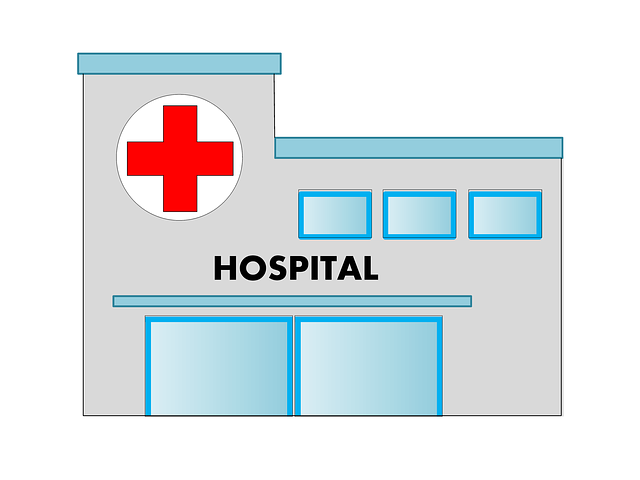AIIMS is a reputed medical institution in India that is well-known for its quality health care services and medical education. Set up with the main purpose of delivering quality medical services and training, the aiims in India have become a source of hope to millions of patients in the country. However, what is the number of AIIMS hospitals in India? It is time to look into this question and discuss the development, role, and perspectives of these leading institutions.
Table of Contents
The Genesis of AIIMS
The first AIIMS was started in New Delhi in the year 1956 under the Prime Minister’s Health Protection Scheme (PMSSY). It was meant to be a medical facility that would provide for the population’s needs in terms of medical care as well as medical innovation and training. The success of AIIMS Delhi paved the way for the Indian government to establish more institutions of this type all over the country.
Today, the AIIMS are not only confined to Delhi but are spread across the country so that every person can get the benefit of AIIMS in every state.
Current Status of AIIMS Hospitals in India
The current number of AIIMS is 26 and out of them many are functional. These institutions are located in different states so that quality health care services can be provided to all the states including the rural areas.
Among these 26 AIIMS, 20 are operational with a full-fledged health care facility from primary to tertiary level including specialties like oncology, cardiology and neurosurgery etc. Six of them are still under construction and development, some of which offer limited services to the public due to the unavailability of infrastructure or human resources. This is under the Pradhan Mantri Swasthya Suraksha Yojana (PMSSY) scheme which seeks to redress imbalances in the distribution of health care facilities and to ease the congestion in the large cities hospitals.
Why Are AIIMS Hospitals Important?

AIIMS hospitals are not only health care institutions but are also an embodiment of India’s dream of attaining the goal of ‘Health for All’. Here are the reasons why they are of such significance:
#1. Centers of Excellence
Every AIIMS is planned to be an institute of excellence and provide best of the treatments and encourage research in the field of medical science. They have well-equipped facilities such as diagnostic equipment, operating theaters, and Intensive care units.
#2. Affordable Healthcare
The primary goal of AIIMS is to offer quality and affordable health care to the people of India. They are offered at lower costs hence the economically challenged individuals can afford to seek medical treatment that they need.
#3. Medical Education and Research
AIIMS institutions function as leading centers for medical education and research activities. The educational programs at these institutions include undergraduate and postgraduate levels together with doctoral studies in medicine and nursing and allied scientific fields. Medical research conducted at these institutions has proven essential for combating non-communicable diseases (NCDs) in public health.
#4. Reducing Regional Disparities
The government seeks to eliminate healthcare accessibility differences between urban and rural areas through AIIMS hospital placements in tier-2 and tier-3 locations. Through this initiative medical care specialists are now accessible to patients who previously needed to travel extensive distances for treatment.
Locations of AIIMS Hospitals

The AIIMS hospitals are situated in different states for the purpose of providing equal opportunities for the people. Some of the well-known institutions are as follows:
#1. AIIMS Delhi
The original AIIMS Delhi maintains its position as the premier institution among all AIIMS facilities. Established in 1956, it stands at Ansari Nagar where Ring Road intersects with Aurobindo Marg in New Delhi. The 213.12-acre campus of AIIMS Delhi provides advanced facilities while maintaining its reputation as a leading medical research and educational center and patient care provider.
#2. AIIMS Bhopal
AIIMS Bhopal operates in Madhya Pradesh to provide healthcare services for central India. The hospital exists as a vital medical training and advanced treatment center which received its establishment through the Pradhan Mantri Swasthya Suraksha Yojana (PMSSY) scheme. The establishment of this medical center has eased the patient load which previously fell on metro-based hospitals throughout the region.
#3. AIIMS Jodhpur
AIIMS Jodhpur located in Rajasthan is one of the premier medical institutions that cater to the health needs of the western region of the country. This institution caters the healthcare needs of a large populace of Rajasthan and the neighboring regions and facilities here include general medicine to super-specialty.
#4. AIIMS Patna
In Bihar, AIIMS Patna acts as a hope for millions of inhabitants of one of the most populous and economically backward states of India. This has helped in making advanced healthcare more accessible to the people by reducing the distances they have to travel for treatment in this AIIMS.
#5. AIIMS Guwahati
AIIMS Guwahati operates in Assam to serve the healthcare needs of Northeastern India. The hospital plays an essential role by providing solutions to healthcare problems that affect the isolated region because of inadequate medical facilities. The facility delivers advanced healthcare through its medical services alongside developing educational programs and research activities in the region.
Conclusion
The expansion of AIIMS hospitals in India can be considered as a major achievement towards the achievement of Universal Health Coverage in the country. The aiims in India have already become operational or under construction and more than two dozen in numbers, they have revolutionized the health care facilities. They are not only the source of cheap and easily accessible healthcare services but also play a role of supporting medical training and development. AIIMS hospitals are the epitome of what is possible for anyone in search of top-notch medical services or for anyone who wants to have a career in healthcare.

